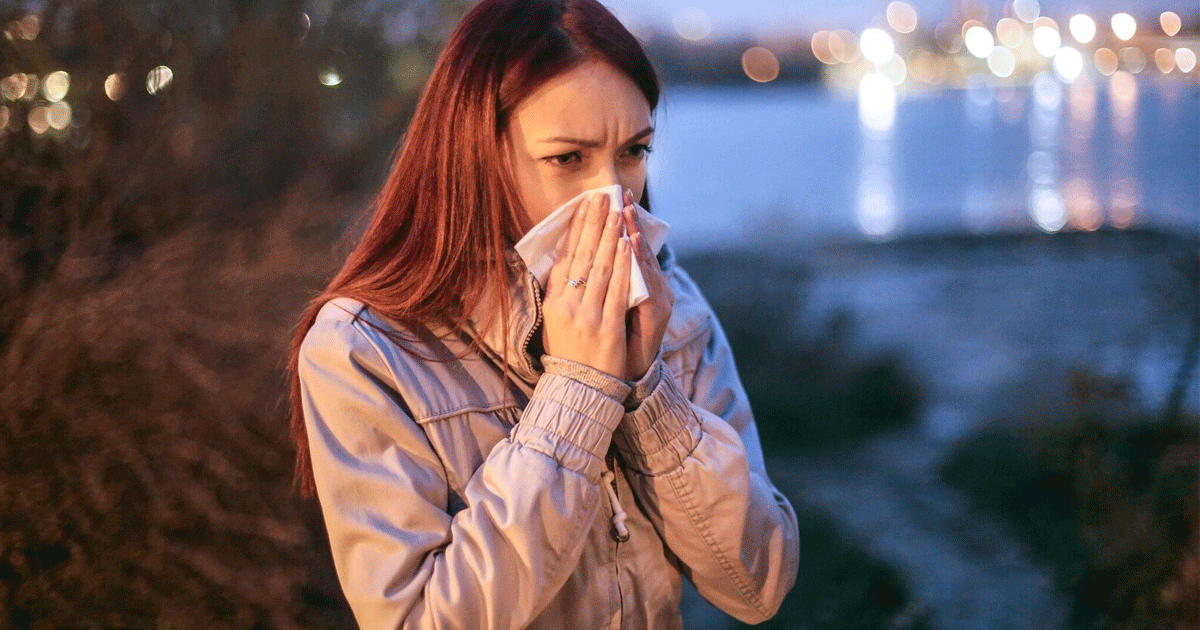Talk To Your Doctor About Antihistamine Use
Over the counter antihistamines are regularly used to combat allergy symptoms in those who suffer from allergies. Before adding an antihistamine to your medicine cabinet, make sure to discuss antihistamines with your doctor. Not all patients benefit from antihistamine use, and your doctor may advise against regular use for nighttime allergies.
Which Allergy Medications Can Help Nighttime Allergy Symptoms
Two types of allergy medications may help nighttime allergies. “Antihistamines may help with sneezing and postnasal drip,” Berger says, while medications help with the stuffiness and nasal congestion.”
But Berger also suggests that a better approach to treating allergies might be the inhaled nasal steroids and intranasal antihistamines. “These inhaled nasal puffs and sprays address all four allergy symptoms of sneezing, itching, runny nose and mucus formation, and nasal congestion and swelling of the mucous membranes.”
If you try the inhaled nasal steroids, Berger advises taking these two weeks before pollen season begins to prevent allergy symptoms. You may plan on staying on inhaled nasal steroids for months, if needed, to keep allergies at bay and avoid sleep deprivation.
If you’re allergic to your pet, Berger suggests seeing an allergist before you consider giving away the family dog or cat.
“Many things can trigger symptoms of allergies such as nasal congestion, even nonallergic rhinitis caused by changes in temperature or weather. See an allergist to find out if you truly have allergies before making drastic changes at home.”
What Are Possible Triggers Of Nighttime Allergy Symptoms
Any type of allergy can ruin your sleep. Rash, food allergies, or an upset stomach triggered by allergies can cause sleep problems. However, the most common pair of sleep-destroyers are nasal allergies and asthma, and there are multiple potential triggers for nighttime allergy symptoms, including the following:
Pollen: This is one of the most common allergens affecting millions of people in the United States. Pollen particles can travel anywhere and can be transported into houses through insects and wind through open windows. They may settle on the skin, hair, clothes, or shoes and stick to pillows and bedsheets. Researchers found that certain types of pollen, which are usually suspended higher in the atmosphere while air is warm, tend to fall closer to the ground level during cool hours at night. If you sleep next to an open window, you may be exposed to these, which worsen your allergy symptoms.
Dust mites: Dust mites find their home in mattresses, pillows, and bedding. People with asthma and other allergies could have a dust mite allergy. Dust mites cause symptoms such as itchiness, breathlessness, chest tightness, coughing, wheezing, eye itchiness and redness, stuffy nose, and sneezing.
You May Like: Robitussin Allergy-cough Syrup
Can Allergies Make You Tired By Slumber Yard
If youve ever had a runny nose, itchy eyes, and you cant stop sneezing, you might have allergic rhinitis , also known as hay fever. AR affects roughly;60 million people;in the United States, and the rate is growing. About 40 percent of people who experience AR are children.;
People think hay fever is only present during certain months, but there are;two types of hay feverseasonal and perennial. People who experience seasonal allergies are most likely to have symptoms during the spring, summer or early fall. Perennial hay fever sufferers experience symptoms year round.
One study;determined that 68 percent of people with perennial AR and 48 percent of people with seasonal AR said allergy symptoms like sneezing and itchiness made it difficult to sleep.;
Allergy symptoms can happen at any time, but they tend to be more frequent at night. Next, well discuss why.
How Can I Prevent Nighttime Allergies

Avoidance and preventative measures are your best bet. Keep your windows closed, especially in your bedroom, and try to rinse off any pollen and change your clothes before bed. Try to keep your pets out of your room. Keep your mattress and pillowcase enclosed in mite-proof casing. Make sure humidity levels are appropriate, and clean any mold you see right away.
You can also try sleeping with your head elevated and rinsing your nose with saline daily, CEENTA allergy specialist Roy Lewis, MD, said. Also, make sure youre taking your allergy medicines as directed.
Also Check: How Much Local Honey To Take For Allergies
Allergens Appearing At Night
Once you go to bed, you cant really combat allergens. If you have an old air conditioner or heater and it blows out dust while you sleep, that could lead to a very unhappy morning. The above pollen example applies, too. If you brought pollen into the bed, then youre very likely to wake up symptomatic.
Also, you could go out at night to avoid pollen counts and end up exposed to another allergen. You come back in, go to bed, and then start the next day with terrible allergy symptoms.
What Type Of Allergies Worsen At Night
Not all allergies worsen in the evening and into the wee-hours of the morning. There are 4 common allergies that aggravate an already stuffy nose at night, trigger a persistent cough, make your eyes itch, or leave you with a daunting headache upon waking. These include: pollen allergies, pet dander allergies, dust mite allergies, and mold allergies.;
Also Check: Cleritin
Keep Pillows And Sheets Clean
As you go in and out of your room, opening doors and windows along the way, youre inviting allergens into your room and onto the bedding.
Minimise the impact of this with regular washing and changing of bed sheets.
You should steer clear of materials like wool or feathers as they cant be washed regularly, as a result, gathering more dust and mites than synthetic fabrics.
DON’T MISS
Other Tips For Lessening Nighttime Allergies And Getting Better Sleep
Here are some of our top tips for getting your night allergies under control and your sleep back on track:
- If you think its indoor mold thats worsening your nighttime allergies, make sure you have adequate ventilation in every room of the house. This goes double for kitchens, bathrooms, and basements, where humidity levels can change more often.
- For indoor mold allergies, you also want to use dehumidifiers in the above rooms, as these keep too much moisture from forming.
- Make sure your home doesnt have any pipes or roof seals with leaks. If you spot these, get them repaired.
- For those with cockroach allergies, call an exterminator. They can tell you if there are any upstairs gaps where cockroaches can get into your bedroom. For instance, they may squeeze in through a window, a crack in the wall, or a small crevice.
- After youre done spending time with your pet, change clothes and wash the ones you wore while spending time with your animal. Dont bring clothes into your bedroom unless theyre clean.
- If you have a dust mite allergy, wash your sheets and other bedding at a high temperature, at least 130 degrees Fahrenheit. The hot water will help remove any lingering mites.
- Make sure you change and clean your bedding every week to keep dust mites away.
- Get plastic or fabric covers for your pillows, box spring, and mattresses so dust mites cant get into your bed.
Read Also: Night Time Allergies
Pollen Allergies / Hay Fever
Hay fever is a type of allergy triggered by exposure to pollen by way of trees, weeds, shrubbery, and grass. Pollen is most highly concentrated in the air at dawn, so if you regularly wander onto your patio for your morning cup of coffee or take a stroll through your neighborhood to let your dog relieve him or herself, you may suffer from exacerbated allergy symptoms directly after this activity.;
Recent research from the Aeroboliogia presents new information regarding pollen count throughout a 24-hour day. It was generally believed that pollen count is the highest at dawn with higher levels of pollen throughout the day and a dip in pollen count in the evening hours. Scientists found that while pollen count is higher during the day for certain pollen types, other pollen types including mugwort, grass, birch, and ragweed were higher or remained the same during the evening hours.;
If you sleep with your windows open at night for a bout of fresh air, pollen may be entering your home and resting on your bedding and pillows without your knowledge causing a flareup of allergies through the night.;
How Should You Sleep With Allergies
With seasonal allergies, you can prevent a flare up and alleviate sinus pain by changing your sleeping position. If youre looking to drain your nose and throat of congestion, try tucking a few pillows under your upper back and head and sleep in an upright position. This position will help you breathe better.
You May Like: Are M&ms Safe For Peanut Allergies
What Causes Shortness Of Breath
Many conditions cause shortness of breath at night. Chronic shortness of breath occurs when you experience the symptom for more than a month. According to an article in American Family Physician, 85 percent of conditions that trigger chronic shortness of breath relate to your lungs, heart, or mental health.
Shortness of breath can occur if your body cant adequately pump oxygen into your blood. Your lungs may be unable to process the intake of oxygen or your heart may not able to pump blood effectively.
Shortness of breath when you lie down is called orthopnea. When the symptom occurs after a few hours of sleep, it is called paroxysmal nocturnal dyspnea.
Different lung conditions can cause shortness of breath. Some are chronic or life-threatening and others can be treated.
Allergies And Sleep Issues

Allergy symptoms can wreak havoc on your lifewhether awake or asleep. People who have allergies often experience sleep concerns.;Sleep is affected because allergens irritate nasal passages, which can make breathing more difficult, and allergies can directly interfere with sleep too. In addition, nasal congestion and other allergy symptoms often are worse during the nighttime. When allergies affect the amount of sleep you get and the quality of your sleep, they can end up having an impact on your quality of life, such as your ability to enjoy daytime activities or be productive at work or school.
Like what
The effects of allergies can cause you to experience daily fatigue. And if youre waking up all night from sneezing and coughing, or are having trouble breathing during your sleep, the fatigue can be considerably worse. These symptoms are detrimental to your sleep and can;leave you feeling tired;throughout the day and might even cause you to feel generally unwell. A research study on this topic found that people who had allergic rhinitis, compared to people without allergies, took longer to fall asleep, slept for fewer hours at night, and felt sleepier during the day. They were also more likely to drink alcohol or use sedatives. Overall, they had worse sleep quality, which decreased their quality of life.
So, what can you do to be rid of those annoying allergies, so you sleep and feel better?
Don’t Miss: Does Kaiser Cover Allergy Testing
High Morning Time Pollen Counts
Pollen levels tend to rise during the night and then peak near dawn. Waking up to a super-charged amount of pollen in the air can cause a reaction in those who are susceptible.
Since people often sleep with windows open during the times of the year when plants and trees are in full bloom, the problem can only be exacerbated.
Tips For Reducing Night Time Allergies
You can do several things to help diminish your nighttime and early morning allergies, returning your sleep to a restful state.
There are several cleaning tactics that you can start integrating in your monthly, weekly, and daily routines. If you are allergic to pollen, wash your hair at the end of every day to remove pollen collecting during the day and prevent it from ending up on your pillow. You should also keep your windows closed if possible to keep pollen from coming indoors. Try to wash your bed sheets once a week to remove dust mites, pollen, and pet dander. Between cleaning, using a dust mite cover on your bed can help keep dust mites away from you. Do a deep cleaning of your entire bedroom on a monthly basis, cleaning carpets and wiping down hidden surfaces where mold may be lurking.
Air purifiers are often recommended as a way to remove allergens. Research has shown that multiple interventions, including using an air purifier placed right by the bed in the sleep breathing zone may help reduce their levels. Traditional air filters can trap pollutants on filters, though Molekule air purifiers go beyond simply trapping pollutants to destroying them at the molecular level.
Sleep is an important part of feeling healthy and performing your best. Nighttime allergies can come in the way of restful sleep. By understanding how allergens work and following the tips above, you may find yourself more refreshed in the morning.
Post Tags
Also Check: Claritan For Allergies
What Causes Nighttime Allergies
You may spend the day with few or no allergy symptoms, only to experience sniffles and itchy eyes when you go to bed. Many triggers of morning allergies can cause bedtime allergies, as well.
For example, if your bedroom has more dust mites than elsewhere in your home, they may trigger symptoms as soon as you get into bed. If you donât spend as much time with your pet during the day, your furry friend may not cause your allergies to act up until they have settled into bed with you at night.
Unfortunately, cockroaches may be another possible cause of nighttime allergies, especially in urban homes. Like dust mites, they can shed saliva, feces, and even body parts that trigger allergy symptoms. They can even cause sinus or ear infections. According to ACAAI, the National Pest Management Association says that 63 percent of all U.S. homes contain cockroach allergens, but this number may be 78 percent to 98 percent in urban areas. Cockroaches may enter the home through windows and cracks in the walls or doors.
While pollen counts tend to be higher in the morning, it can also cause nighttime allergies. Warm temperatures push pollen into the air, but cooler evening air means that pollen falls back down to cover outdoor surfaces at night. If you collect pollen in your hair or clothes over the course of the day, it can cause bedtime allergy symptoms once youâre in for the night.
Atopic Dermatitis And Sleep
Atopic dermatitis is associated with itching of the skin, which can be severe and may also be worse when you are trying to sleep.
As you are drifting off, your parasympathetic nervous system kicks in, which helps you relax but also increases your perception of subtle sensory cues like itching.
Sleep disorders can also worsen the symptoms of atopic dermatitis due to disturbances in sleep-related hormones and their effect on the immune system.
Itching, scratching, and other symptoms of atopic dermatitis can, obviously, make it hard to get comfortable. Experts suggest that sleep disturbances are a reflection of the severity of atopic dermatitis.
Recommended Reading: Zyrtec Pills
How Do You Find Out What’s Causing Your Allergies
Enright suggests that you become an allergen “sleuth” to find out which allergens are causing your symptoms. If your allergies only happen at nighttime, perhaps you are allergic to something in your bedroom.
The most common allergens in bedrooms are microscopic house dust mites which live in bedding.
If the humidity in your bedroom is above 40%, molds may be growing in the carpet, bedding, and upholstered furniture.
If there is a smoker in your home, your nose and sinuses are probably becoming congested due to your inhaling secondhand smoke at night. A HEPA room air purifier running in your bedroom will remove the smoke. If you are unsure about the cause of your allergy symptoms, get a skin test or a blood test to identify the allergens that cause your problems.
Reasons Your Allergies Are Worse At Night
Like clockwork, your seasonal allergies are back. As if the runny nose, sneezing, and itchy eyes werent bad enough, your allergy symptoms might also make it nearly impossible to sleep. Allergy symptoms actually can get worse at night, says Purvi Parikh, MD, an allergist and immunologist with Allergy & Asthma Network and Allergy & Asthma Associates of Murray Hill in New York City.
Nope, its not just youand its not in your head. Heres what to know about nighttime allergy symptoms when the pollen counts high.
RELATED:
Also Check: Do Infants Have Allergies
What Climate Is Best For Allergies
The best climate for allergies would be the Polar climate. The AAFA has listed 10 Better Than Average places to live with seasonal allergies for those who dont want to move to Antarctica.
Cities with the least allergy concerns:
Generally speaking, when you look at these locations on a map the best areas to live with seasonal allergies are near the west coast and mountainous ranges.
There Are Also More Long

â ExACT Immunoplasty â;, which involves three injections given over an eight-week period, may provide the same amount of relief as 3-5 years of other types of allergy immunotherapy.
â Allergy drops require just a once-yearly trip to an allergist clinic.
â Allergy shots require more frequent trips to the clinic, but they are an affordable, time-tested option for long-term allergy relief.
Are you tired of waking up with morning allergies? Want to stop suffering from bedtime allergy symptoms? The allergy experts at AspireAllergy & Sinus will work with you and your family to determine the best solution for your allergies. Come see us and request an appointment today!
Recommended Reading: Medicine Claritin

